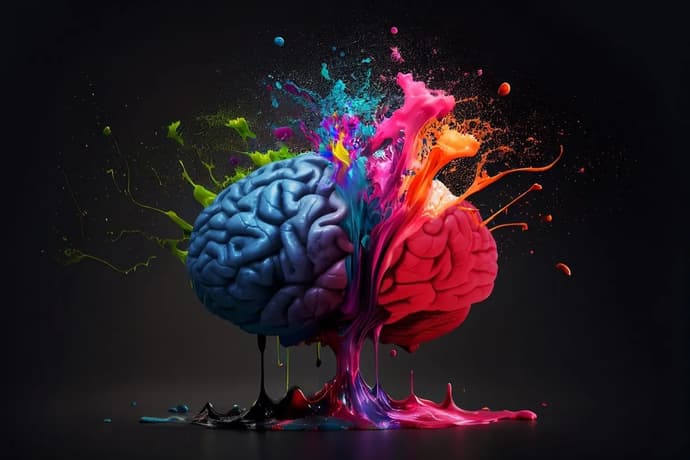
Risk vs Reward: An Exploration of How Gambling Affects Our Brain

The digitalization of casinos has transformed gambling from a niche activity into an easily accessible pastime, engaging players in ways that were unimaginable just a decade ago. Today, people can place bets around the clock from virtually anywhere—on their phones, computers, or gaming consoles. With gambling mechanics embedded in online games and sports betting widely legalized, even youths are being exposed to wagering, and this is well before they reach the legal gambling age.
While the convenience of online gambling is undeniable, the risks go far beyond financial losses. Researchers have uncovered disturbing evidence that gambling doesn’t just affect behaviour—it can rewire the brain. From influencing decision-making to reinforcing addiction pathways, the neurological effects of gambling can drive compulsive behaviours that are difficult to control.
Gambling can trigger intense brain responses to risk and reward, making it a thrilling yet potentially addictive activity if not practised in moderation. The anticipation of winning activates the brain's reward system, often leading to repeated (and potentially compulsive) gambling behaviour. And while you can visit Bonusmonitor.ca for the best bonuses around, it's essential to gamble responsibly.
The psychology of gambling hinges on the balance between risk and reward, often clouding rational judgment, consequently leading to excess. The thrill of potential rewards can overshadow the risks, driving people to gamble more. Understanding these psychological forces is crucial for maintaining control.
Join us as we explore the many ways gambling affects the brain and how we can develop smarter strategies for prevention, responsible gambling, and intervention.
Dopamine Kick
Over the years countless studies have shown how gambling affects the brain’s reward system, making it harder to control impulses and leading to compulsive behaviour. Much like drugs, gambling triggers a rush of dopamine—the brain’s “feel-good” chemical—which makes people want to keep chasing that high.
This is what makes gambling so thrilling and keeps people coming back for more. Winning a bet or hitting a jackpot gives you a surge of pleasure, and your brain craves that feeling again. However, it’s important to note that gamblers can build a tolerance, meaning they start taking bigger risks or betting more frequently just to experience the same excitement. When they try to stop, they might go through withdrawal symptoms like anxiety, restlessness, or irritability—similar to someone trying to quit a substance.
Decision Making Abilities
Chronic gambling can also mess with the way people make decisions. The part of the brain that helps us think rationally and control impulses—the prefrontal cortex—can shrink when you gamble too much. This makes it harder to think, weigh risks, and make smart choices.
As a result, gamblers can become more impulsive and take bigger risks, even when it’s not in their best interest. The more they gamble, the harder it gets to stop, which only worsens the problem and increases the risk of addiction.
Brain scans show that problem gamblers have different brain activity compared to non-gamblers, especially in areas that control decision-making and self-control. Many gamblers also fall into the "gambler's fallacy," which happens when players believe that past outcomes will affect future ones. In reality, the odds don’t change based on prior results. The brain tricks gamblers into expecting a pattern, causing them to make decisions that aren't grounded in reality.
The good news is that seeking help early on can prevent long-term changes in how your brain functions, so it’s important to get support before gambling starts to take over.
Cognitive Biases
Unfortunately, another way gambling impacts players is through cognitive biases—mental habits that shape how we perceive and process things. One example is confirmation bias, where gamblers focus more on their wins and remember them more clearly than their losses. This leads them to believe they have special skills or good luck.
On the other hand, they may forget or downplay their losses, which reinforces the idea that they’re "due" for a win. This kind of thinking can push them to take bigger risks and continue gambling, even when it’s not in their best interest. Essentially, their brain convinces them they’re in control or have better chances than they do.
Recovery Is Possible
The good news is that recovery is possible. With the right treatment, it’s possible to undo some of the brain’s changes caused by gambling, offering support for those who want to regain control. It’s important to understand why gambling becomes addictive in the first place and recognize that the rise of online gambling has introduced new challenges that make awareness even more critical.
Addressing these challenges and removing obstacles to treatment is key. By focusing on prevention and fostering a supportive environment, we can help reduce gambling addiction and its harmful effects on the brain.

Elen Stelmakh is a creative individual dedicated to advancing gaming culture through articles and visual design. As a full-time EGamersWorld author and designer for a gaming website, Elen not only creates content but also infuses it with energy and creativity.
 StarRupture Water Locations & SourcesStruggling with hydration on Arcadia-7? Learn how to get water in StarRupture by finding Hydrobulbs and crafting advanced Aqua items.
StarRupture Water Locations & SourcesStruggling with hydration on Arcadia-7? Learn how to get water in StarRupture by finding Hydrobulbs and crafting advanced Aqua items.
 How to Use Drones in StarRupture: Unlocking, Control & BuildingThis StarRupture Drone Guide covers how to unlock the essential Building Drone and automate your entire resource pipeline with an efficient rail network, including all upgrades and management tips.
How to Use Drones in StarRupture: Unlocking, Control & BuildingThis StarRupture Drone Guide covers how to unlock the essential Building Drone and automate your entire resource pipeline with an efficient rail network, including all upgrades and management tips.
 How To Build in StarRupture: Complete Unlocking GuideMy StarRupture Building Guide details every unlock and the best strategies for creating efficient, defensible bases.
How To Build in StarRupture: Complete Unlocking GuideMy StarRupture Building Guide details every unlock and the best strategies for creating efficient, defensible bases.
 How To Craft in Hytale: Recipes You Need For BeginningA complete guide to Hytale Crafting. Learn pocket crafting, workbenches, and all the essential recipes to get started.
How To Craft in Hytale: Recipes You Need For BeginningA complete guide to Hytale Crafting. Learn pocket crafting, workbenches, and all the essential recipes to get started.



